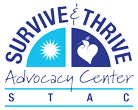Federal law and many states’ anti-trafficking laws create liability for businesses who “knew or should have known” that human trafficking was happening on their premises. Civil laws can protect and restore victims who are exploited, raped, forced to work and trafficked. STAC is working hard to help educate the community, including the business community, to do what this article says is the smart response – understand the signs of human trafficking and know what to do if you suspect it.
“In 2019 and 2020, victims of alleged sex trafficking filed a flurry of lawsuits against hotel franchisors, franchisees, owners and operators that rocked the hospitality industry. Conceivably generated by the #MeToo movement and high-profile claims against Harvey Weinstein, Jeffrey Epstein and others, cases filed under the Trafficking Victims Protection Reauthorization Act (TVPRA)— primarily in federal court — have skyrocketed.
According to the 2019 Federal Human Trafficking Report published by the Human Trafficking Institute, cases increased from just seven suits in 2018 to the initiation in 2019 of 43 lawsuits pending in more than 23 U.S. district courts.
At the heart of these lawsuits is the allegation that corporations — typically hotels, motels and truck stops, which may unknowingly provide a venue for trafficking crimes — have turned a blind eye to these criminal acts.”




